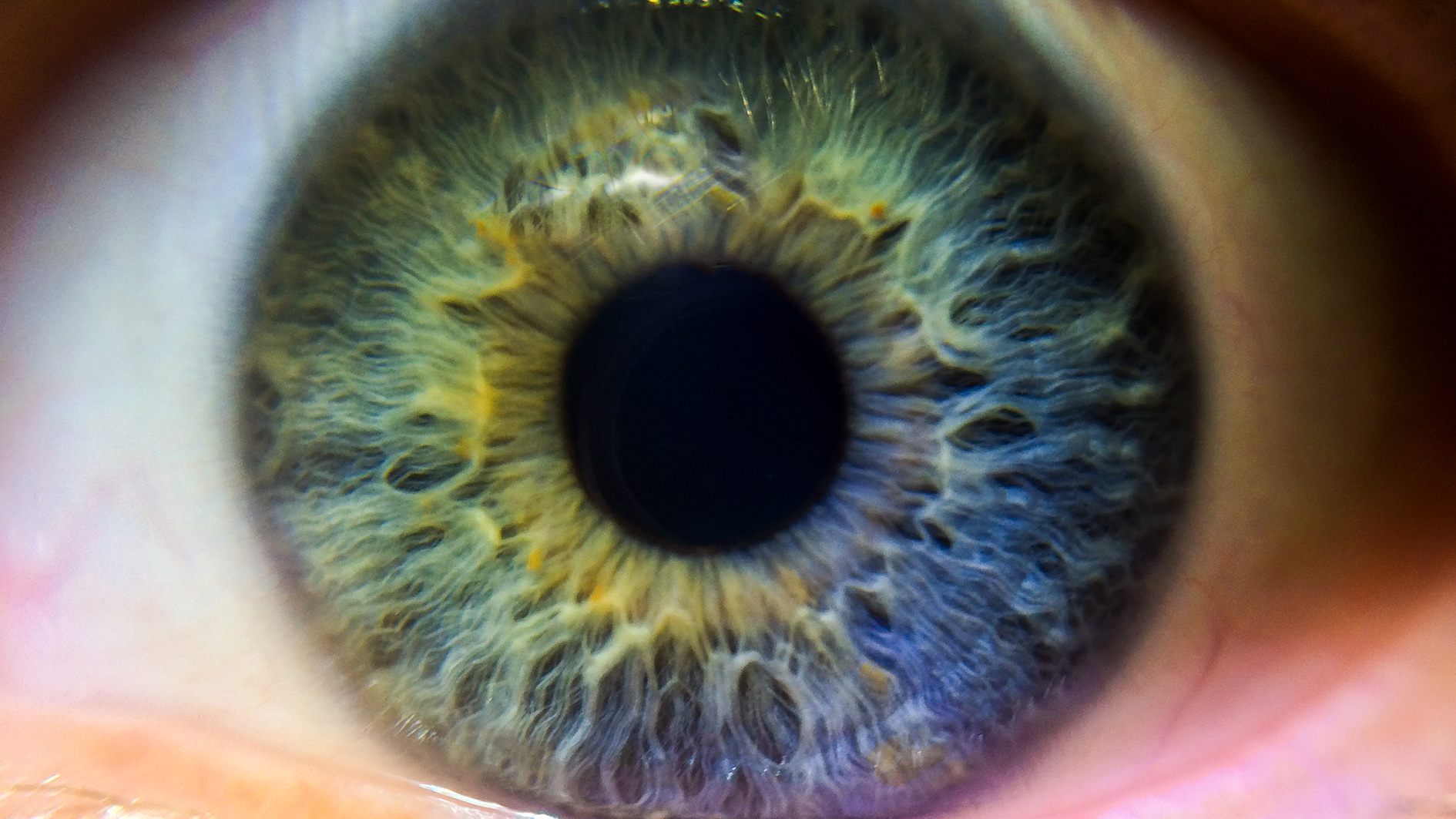LHON in the family: living under the spectre of an hereditary eye disease

It’s hard to imagine suddenly losing your sight in your 20s, but that’s what happened to Richard Wheeler when he developed Leber’s hereditary optic neuropathy (LHON).
People with LHON, a rare mitochondrial disease that affects around two in 100,000 people in Europe1, are usually registered blind, unable to read, drive or recognise faces, within months of diagnosis.
Despite the enormous impact on the lives of those living with the progressive condition and their families, it remains under recognised by healthcare professionals and the public alike.
We talk to Richard’s father, Russell Wheeler, about the realities of living with LHON in the family.
Diagnosis: a life-changing event
Richard was 24 when he first experienced symptoms, but with no awareness or knowledge of LHON, his family had no idea what was in store.
“He complained of blurred vision but had been living a rather Bohemian existence at the time, smoking and drinking heavily. We assumed this was the cause and advised him to clean up his lifestyle,” said Russell Wheeler.
In a little over a month, however, Richard had lost his sight, and with it his independence.
“He moved back in to the family home and we became once again an important part of his support network as he made the necessary adjustments to life without sight,” said Russell, whose experience led him to co-found the LHON Society.
Richard needed a raft of emotional, psychological and practical support from his family, and this impacted on everyone.
“When something as sudden and potentially devastating as this occurs, there is a huge change in the family dynamic,” explained Russell.
Adapting to a new reality
Although he was initially in denial, Richard subsequently attended a residential training course where he learnt to read Braille and other new skills, and when he decided to go back to university, he needed his dad’s help.
“I supported him with an average of 25 hours a week of personal assistance, helping him to access materials for his course and reading print articles to him that were not accessible via screen reading or other software,” said Russell. “Graphs and tables in particular need human intervention to describe them to a non-sighted reader.”
After about a year, living with LHON became more ‘normalised’ for Richard, but the impact has been huge.
It took some years of slowly building his workplace skills through volunteering before he finally entered the workforce, and LHON has taken a huge toll on his social life.
“His vision impairment has had a dramatic effect on his ability to enjoy a normal social life, and the sort of spontaneity that most people take for granted is all but impossible for him. He still has a good social life, but it takes careful management and organisation for him to meet his friends,” said Russell.
“His ability to travel freely is also curtailed, although he makes a great deal of effort to overcome this. Of course, his ambition to drive has had to be put on hold for now.”
Richard has also suffered with depression, and this is not uncommon in LHON, which is incurable and tends to affect people just as they are starting out in life.
“The assumption had always been that once we reached a diagnosis we would automatically proceed to a treatment. It was quite a shock to be told there was none,” explained Russell.
A family concern
Richard’s diagnosis means the whole family now lives with the spectre of LHON, which is passed down the maternal line.
“Our other two children try to put worries about becoming blind out of their minds, but of course this is impossible. They are afraid of losing their own vision, as well as being concerned for their brother,” said Russell, adding that his daughter had the further consideration of family planning and whether to take up genetic counselling.
The emotional impact is huge but supporting someone to live with such a condition is also expensive. As well as the direct costs of things like assistive technology, families like Richard’s also suffer a loss of earnings.
“We have invested several thousands of pounds in technology to help our son as well as to support his activities and to be there for him,” said Russell.
“I have spent thousands of hours learning about the condition and supporting my son that otherwise could have been spent earning money for my family.”
Raising awareness of LHON
This has made Russell something of an expert in LHON, but this was made necessary by the lack of information the family received at Richard’s diagnosis.
It took around three months to find out what was wrong, but not before multiple sclerosis and a brain tumour had been mooted as possibilities. The journey involved multiple trips to the GP, ophthalmic specialists and a referral to the National Hospital for Neurology and Neurosurgery in London.
“Among the clinical community, it is not so much misunderstood as unrecognised, except by those close to the topic through virtue of their specialism. Right now, we have too many theories and not enough scientifically-proven facts, which is inevitable in a rare disease,” said Russell.
All this led to Russell helping to set up the LHON Society to champion the plight of people affected by the condition.
“We were not satisfied with the information we received, but I understand why and it’s not something that upsets us; rather, it motivates us to make sure things are better for new families receiving the diagnosis. In theory, there is a lot of support available via state and charitable institutions, but firstly you need to know about them, and secondly you need to access them,” he explained.
The road to a new life
By raising awareness, both among the healthcare community and the general public, groups like the LHON Society aim to boost resources available for research.
This, they hope, will improve quality of life for those affected, and ultimately lead to a cure.
Because LHON tends to affect people just as they are starting out in life, it leaves them having to adjust to a very different future to the one they had planned.
It has a significant impact, affecting every element of life. But people can learn the skills they need to adapt if they have the right support.
For more information on LHON, click here.
References:
- Carelli, V, et al. J Neuroophthalmol. 2017; 37:371-81.
Russell Wheeler. (n.d.) Retrieved from: http://www.lhonsociety.org/
Shedding light on LHON: the rare blindness affecting young adults. (2 October 2017). Retrieved from: https://pharmaphorum.com/views-and-analysis/lhon-rare-disease-blindness-young-adults/










